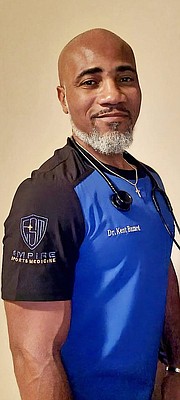IN the dynamic world of sports, where the pursuit of excellence pushes athletes to their limits, the art of recovery has become as crucial as the game itself. Join us as we take a deep dive into the latest advancements in sports medicine, uncovering innovative strategies and technologies designed to propel athletes toward faster and more effective recovery from intense training and competitions.
The Science of Recovery: Beyond Ice Baths and Rest
Gone are the days when recovery meant a simple ice bath and some rest. Sports medicine has evolved, embracing a multi-dimensional approach to optimise recovery. Scientific studies, including research in the Journal of Science and Medicine in Sport, underscore the significance of tailored recovery plans. We now delve into the realms of personalised protocols designed to address each athlete’s unique physiological needs.
Cryotherapy: Chilling Out for Performance Gains
One standout in the realm of recovery is cryotherapy, a technique that involves exposing the body to extremely low temperatures. Our investigation explores the science behind cryotherapy, its impact on inflammation reduction, and how athletes are incorporating it into their recovery routines. Interviews with sports medicine specialists shed light on its application and efficacy.
Biometric Monitoring: Precision in Recovery Tracking
The era of guesswork in recovery is waning, thanks to biometric monitoring. We examine the role of wearable devices and advanced monitoring systems in providing real-time data on an athlete’s physiological markers. From heart rate variability to sleep patterns, these technologies empower athletes and their support teams to make data-driven decisions for optimal recovery.
Nutrient Timing: The Power of Precision Nutrition
Nutrition is no longer just about pre-game meals and post-training shakes. Our exploration uncovers the science of nutrient timing, where specific nutrients are strategically consumed to maximize recovery. We dissect the latest research on the ideal timing and composition of post-exercise meals to replenish glycogen stores and support muscle repair.
Regenerative Therapies: Accelerating Healing from the Inside Out
Regenerative therapies, including platelet-rich plasma (PRP) and stem cell treatments, are changing the game in sports medicine.
We investigate how these therapies harness the body’s natural healing mechanisms to accelerate tissue repair, offering athletes a novel approach to recovery and injury prevention.
Virtual Reality and Mind-Body Techniques: Recovering the Mind for Optimal Performance
Recovery extends beyond the physical realm to encompass mental well-being. Our report delves into the use of virtual reality and mind-body techniques in sports recovery. We explore how mental relaxation and visualization exercises are becoming integral components of recovery programs, enhancing overall performance.
Conclusion: Redefining the Recovery Game
In the evolving terrain of athletic recovery, a revolution is underway. Athletes, armed with cutting-edge strategies and technologies, navigate a landscape where precision meets performance. From the cryotherapy chamber to regenerative therapies, the journey towards optimal recovery is now finely calibrated.
This exploration into the innovations shaping the future of sports medicine signifies more than a trend; it is a scientific evolution, where the recovery process itself becomes a strategic element in the pursuit of athletic excellence.
As athletes harness the power of science to recover smarter, the paradigm of performance is shifting, revealing a future where resilience and rejuvenation are as essential as skill and strength.
• Dr Kent Bazard is a Bahamian sports medicine physician, sports performance coach, sports nutrition specialist and founder of Empire Sports Medicine. Our mission is to empower athletes to reach new heights while safeguarding their health and well-being. We understand the unique demands of sports activities, and we are dedicated to helping athletes prevent injuries, overcome challenges, optimise nutrition and performance.





Comments
Use the comment form below to begin a discussion about this content.
Sign in to comment
OpenID